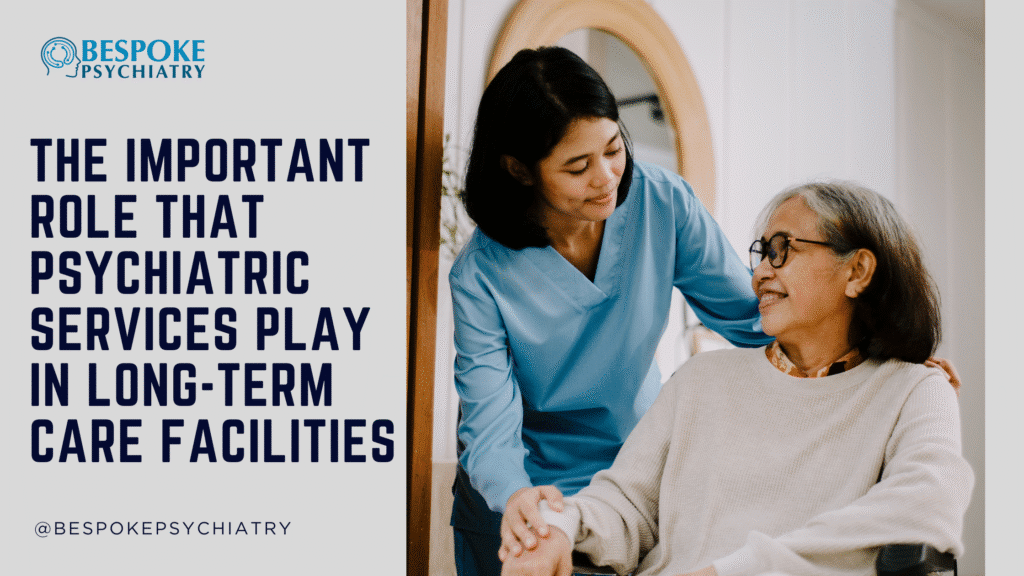
Psychiatric care in long-term care (LTC) facilities present unique challenges and opportunities. Many residents arrive with complex medical and psychiatric histories, often accompanied by extensive medication regimens. While medications can provide significant relief from psychiatric symptoms, they also carry risks—particularly for older adults who may be more vulnerable to side effects, drug interactions, and cognitive or functional decline. Thoughtful medication management, including gradual dose reductions (GDRs) and strong collaboration with facility staff, can meaningfully improve residents’ overall quality of life.
Medication Management: Balancing Benefits and Burdens
Effective medication management begins with a comprehensive review of each resident’s psychiatric and medical treatment plan. Psychiatrists and prescribers are tasked with weighing the therapeutic benefits of medications against the potential for adverse effects such as sedation, falls and confusion. Routine reassessment helps ensure that medications continue to meet their intended goals.
Gradual Dose Reductions: A Thoughtful Approach to Care
Regulatory guidelines encourage the use of GDRs for psychotropic medications when clinically appropriate. Rather than abrupt discontinuation, a carefully monitored tapering process allows for close observation of residents’ symptoms and adjustment of care plans. This approach minimizes withdrawal effects and provides opportunities to evaluate whether non-pharmacological interventions—such as behavioral strategies, supportive counseling, and structured activities—can maintain stability. When successful, GDRs often lead to improvements in alertness, mobility, and social participation.
Partnership with Facility Staff: The Foundation of Success
Psychiatric providers cannot optimize care in isolation. Nurses, aides, activity coordinators, and social workers play critical roles in monitoring residents’ behaviors, mood, and daily functioning. Building strong partnerships with these team members ensures that changes in medications are supported by real-time feedback and tailored interventions. Ongoing communication—whether through interdisciplinary care meetings, staff training, or informal check-ins—fosters a culture of shared responsibility and resident-centered care.
When medication management, GDRs, and staff collaboration are aligned, residents often experience tangible benefits: improved cognition, reduced sedation, fewer falls, greater participation in meaningful activities, and enhanced mood stability. Families also notice positive changes, reinforcing trust in the care process.
At Bespoke Psychiatry, we partner with long-term care facilities to provide compassionate, evidenced-based psychiatric services that promote quality of life, compliance and safety. Click here to connect with us to learn how we can support your residents and staff.



